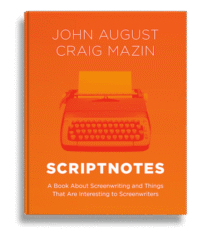This was a tough year. American democracy strained under authoritarian assault. Here in Los Angeles, friends lost homes in the fires while many in the industry struggled to find work.
But good things happened as well. Babies were born. Terrific movies and TV shows debuted. My family was happy and healthy.
My husband has a great memory when it comes to personal history — he can tell you when we last had dinner at a particular restaurant — whereas the past to me is a smeary blur. So this year, I decided to go through my calendar, photo roll, and Day One entries to piece together what the hell I actually did in 2025.
Here’s a slightly redacted version, with names of certain people and projects omitted. In these redactions, I’m always referring to the same title, person or place. “Studio” is the same studio throughout, for example.
January
Went skiing at Mammoth with our nephew, Ben. Finished script and score prep for a new Big Fish musical reading, now a one-act. Pitched remake of Tentpole Movie to Studio, which controlled the rights.
February
Big Fish 29-hour reading in New York, with Jerry Zaks directing and Patrick Wilson as Edward Bloom. Recorded interview for Corpse Bride’s 20th anniversary. Released Birdigo on Steam. Studio said yes on Tentpole Movie remake. Finished the D&D campaign (Bandits!) I’d been running for the past year.
March
Released Highland Pro after a lengthy beta. Delivered final edits on Wolf’s Belly, a graphic novel illustrated Simón Estrada. (It comes out July 2026). Met on an animated Riot Games movie that never went anywhere. Remodeled primary bathroom shower. Studio realized Tentpole Movie was too close to another movie in development, and passed.
April
Celebrated 25th anniversary with a 14-day trip to Jordan and Egypt. We flew in and out of Dubai, where a hotel gym weight bench smashed my left thumb. Placed third in Rachel Bloom’s birthday Spelling Bee.
May
Pitched a feature based on Mattel’s Little People to various buyers. Got no takers. Had a general meeting with president at Studio, which led to a protracted series of meetings about a remake of Classic Title with Famous Director and Movie Star.
June
Zoomed with various tabletop RPG designers about a potential heist game. Announced feature I’m writing for Laika — my first WGA-covered animated project. Participated in the first No Kings protest in Anchorage, Alaska, before a weeklong cruise along the coast with my extended family. Served as an advisor to the Sundance Screenwriters Lab online. Staycationed in Venice (CA) while contractors replaced 20 windows and doors in the house.
July
Visited our friends in Cambria on our way to San Francisco, where we ran the San Francisco Half Marathon.
August
Turned in first draft of Laika project. Received first printed galleys of Scriptnotes book. Took various meetings and zooms about Classic Title. Agreed to co-chair the WGA negotiating committee. Went to Bears in Space.
September
Met with potential designers for a new software project. Hired first international contractor. Finished construction at the house. Stayed two nights in West Hollywood during termite tenting. Hosted a pool party. Zoomed with International Director’s development team about Series. Studio said no to Classic Title.
October
Visited daughter in Australia, where she was studying for the semester. Traveled to Hamilton Island with friends. Saw the Great Barrier Reef and Blue Mountains. Attended the No Kings protest in Los Angeles. Pitched Series to streamers. Hosted two live Scriptnotes at the Austin Film Festival, where Highland Pro was a sponsor this year. Spoke with producer about moving Long-Dormant Project to a new home.
November
Visited the set of Indie Film shooting in Palm Springs. Attended first meeting of AI Coalition. Traveled to Las Vegas to see Kelly Clarkson, along with The Mob Museum, The Neon Museum, and Meow Wolf.
December
Launched the Scriptnotes book with a live show at Dynasty Typewriter. Turned in rewrite of Laika project. Finished office sound panel installation. Spent a week in Mexico City. The thumb I smashed in April has finally regrown its nail. Apple featured Highland Pro as one of its 26 Amazing Apps for 2026.
25 for 25
Last year, my husband and I made a list of goals for things we want to do together, which we called 24 for 2024. This year, we completed 17 of our 25 goals, including hosting three game nights, attending two sporting events, and seeing our first-ever opera.
Movies I saw in the theater
- 28 Years Later
- After the Hunt
- Captain America: Brave New World
- F1
- Knives Out: Wake Up Dead Man
- Mickey 17
- Mission: Impossible – The Final Reckoning
- One Battle After Another
- Opus
- Predator: Badlands
- Showgirls (revival screening)
- Sinners
- Suspicion (revival screening)
- Superman
- The Fantastic Four – First Steps
- The History of Sound
- The Naked Gun
- Thunderbolts
- Tron: Legacy
- Twinless
- Weapons
- Wicked: For Good
Shows I saw on stage
- Channing/Tatum
- Cult of Love
- Eureka Day
- Mike Birbiglia’s The Good Life
- Parade
- Pump Up the Volume
- Rent
- Stereophonic
- Sunset Boulevard
- WEER
Books I read
- Nine Princes in Amber by Roger Zelazny
- Strange Houses by Oketsu
- Colin Gets Promoted and Dooms the World by Mark Waddell
- Darryl by Jackie Ess
- If Anyone Builds It, Everyone Dies by Eliezer Yudkowsky, Nate Soares
- More Everything Forever by Adam Becker
- The Ideological Brain by Leor Zmigrod
- Self-Sabotage by Jeffery Self
- Waiting for Godot by Samuel Beckett
- Four Thousand Weeks by Oliver Burkeman
- The Keep by Jennifer Egan
- The Scaling Era by Dwarkesh Patel
- Antimemetics by Nadia Asparouhova
Other Stats
I ran 692 kilometers. I went to the gym 47 times. I played 39 sessions of D&D.


